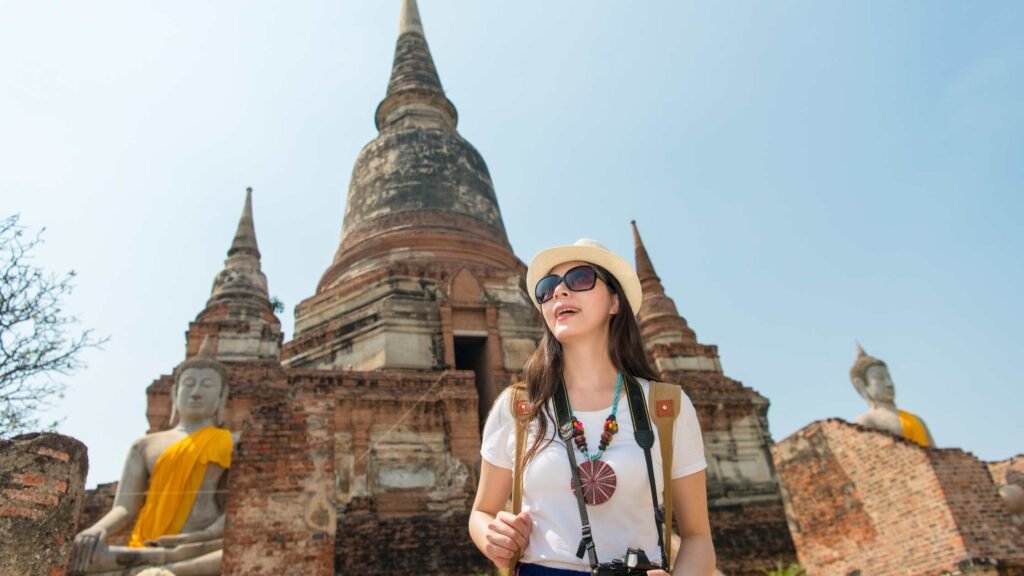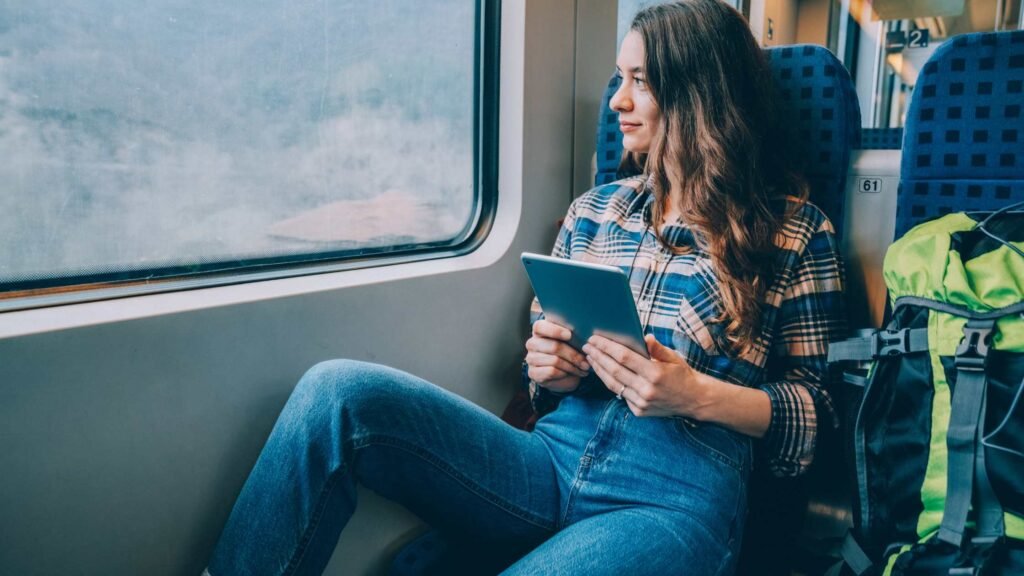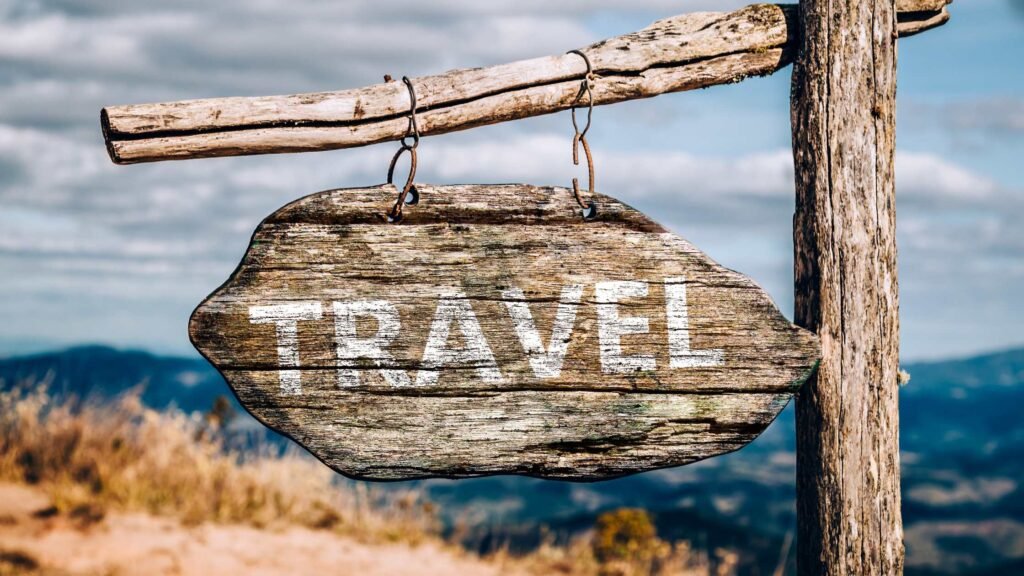You should start traveling at a time that aligns with your personal, financial, and work-related circumstances. Consider seasons, local events, and personal commitments for optimal travel experiences.
Deciding on the ideal moment to embark on a journey hinges on various factors unique to each individual. Your financial stability is a cornerstone; ensuring you have the budget for travel without incurring debt is crucial.
Work obligations also play a pivotal role – it’s best to plan a trip when you can take time off without it impacting your professional responsibilities.
Besides, consider the destination’s climate and peak tourist seasons to enhance your travel experience. Off-season travel might save you money and allow for a more authentic interaction with the locale.
Eventually, personal milestones or commitments should not be overshadowed by travel plans. Striking a balance between desire for adventure and practicality is key to a fulfilling and stress-free journey. Let’s explore “When Should I Start Traveling”?
Table of Contents
Toggle- Introduction To The Allure Of Travel
- Assessing Personal Circumstances
- Considering Seasonal Impacts On Travel
- Age And Life Stages: Travel Perspectives
- Travel Goals And Aspirations
- Evaluating Health And Mobility Considerations
- Comprehension The Socio-political Climate
- Technological Advancements And Travel
- Financial Strategies For Aspiring Travelers
- The Psychological Benefits Of Travel
- Making The Leap: Planning Your Departure
- Frequently Asked Questions On When Should I Start Traveling
- Conclusion
Introduction To The Allure Of Travel
Welcome to the Introduction to the Allure of Travel, a captivating journey that begins with an innate curiosity and blossoms into a passion for discovery. The very essence of travel extends far beyond planes, trains, and new terrains; it’s about the indescribable feeling of excitement that comes from exploring the unknown.
Let’s unpack the reasons behind this magnetic appeal and delve into what truly makes us seek new horizons.
Understanding The Travel Bug: Why We Yearn To Explore
Ever notice the longing for unfamiliar places, sounds, and tastes? That’s the travel bug, a term that captures our deep-rooted desire to explore.
This itch to roam stems from a mix of curiosity, a quest for adventure, and a yearning to break away from the everyday. We’re naturally drawn to new experiences that challenge us, teach us, and ultimately, enrich our lives. Here’s why the travel bug is so compelling:
- It tickles our curiosity: The world is a book and those who don’t travel read only one page.
- New connections await: Travel binds us with others, creating lasting friendships and clarity.
- Adventures make us grow: Every trip has the potential to teach invaluable life lessons.
Defining Travel: More Than Just A Physical Journey
While traveling often involves moving from one place to another, it’s much more significant than the physical act. Traveling is a personal transformation, a way to open our minds and expand our perspectives.
As we step outside our comfort zones, we’re invited to not only see but also to sense the world in a profoundly different way. Here are elements that define travel:
| Sense of Adventure | Personal Growth | Cultural Exchange |
|---|---|---|
| Seeking thrills and new experiences | Learning about oneself and the world | Engaging with diverse traditions and viewpoints |
| Conquering fears and pushing limits | Gaining confidence and resilience | Sharing stories and creating memories |
Ultimately, travel transforms us, teaching that the journey is truly more important than the destination. It’s about embracing each moment, whether it’s a breathtaking sunrise or a simple conversation with a stranger. Ready for takeoff?
Assessing Personal Circumstances
Deciding the best time to start traveling demands considering personal circumstances. Everyone’s life is different; hence, timing your adventures is fundamental. Let’s dive deep into key aspects that determine your readiness for globetrotting.
Career And Educational Commitments
Before booking that ticket, look at your career or school calendar. Are you able to take time off? Do you have important projects due? Plan trips around your commitments.
- Examine work leave policies
- Assess academic breaks and exam schedules
- Consider remote work or study opportunities
Financial Health And Budgeting For Travel
Healthy finances are key to stress-free travel. Save ahead of time. Track expenses. Aim to travel with financial peace of mind.
| Financial Task | Action Plan |
|---|---|
| Savings for Travel | Start a dedicated travel fund |
| Travel Budget | Calculate daily expenses and total trip cost |
| Emergency Fund | Ensure extra cash for unforeseen events |
Family, Relationships, And Personal Obligations
Travel impacts those around you. Align trips with family events. Ensure your relationships support your travel plans.
- Inform family and friends early
- Plan for pet or home care in advance
- Respect significant dates and events
Considering Seasonal Impacts On Travel
Considering Seasonal Impacts on Travel is significant for any wanderlust-filled journey. The season dictates not only the weather you’ll enjoy or endure but also impacts crowd levels, pricing, and overall experience.
Smart travelers know that the time of year can make or break a trip. Let’s delve into how to gauge the best times to explore the globe.
Weather Patterns And Optimal Seasons For Destinations
Every place on Earth has a climate rhythm vital to consider:
- Caribbean: The dry season from December to April is best to avoid hurricanes.
- Europe: Enjoy mild weather and fewer crowds in May and September.
- Asia: November to February offers cooler, drier days in Southeast regions.
Research your destination’s climate to pick perfect travel dates.
Off-peak Vs. Peak Travel Times: Pros And Cons
Deciding between off-peak and peak times depends on what you value:
| Off-Peak | Peak | |
|---|---|---|
| Costs | Less expensive | Higher prices |
| Crowds | Fewer tourists | Busy attractions |
| Experience | More intimate | Lively atmosphere |
Consider your budget and travel style to decide which is right for you.
Festivals, Events, And Seasonal Attractions
Some destinations come alive with seasonal events:
- New Orleans’ Mardi Gras in spring bursts with culture and color.
- Germany’s Oktoberfest in autumn brings in beer lovers worldwide.
- Japan’s cherry blossoms in early spring create a pink-hued paradise.
Plan around these events for an unforgettable experience or quieter alternatives.
Age And Life Stages: Travel Perspectives

Traveling is an adventure that knows no age limits. Each stage in life offers a unique perspective on the world.
The Right Time To Travel For Young Adults
Young adulthood is a prime time for exploration and self-discovery. This is when many are free from heavy responsibilities.
- Gap years help gain new experiences before college or career.
- Backpacking can be both economical and thrilling.
- Study abroad programs merge education with cultural immersion.
Midlife Travel: Balancing Adventure And Responsibility
Midlife brings a mix of adventure and duty. Many have financial stability but face obligations.
| Pros | Cons |
|---|---|
| More budget for travel | Time restrictions |
| The desire for luxury and comfort | Work and family commitments |
| Richer travel experiences | Health considerations |
Travel clubs and family vacations are popular for midlifers seeking escape.
Senior Travel: Embracing The Golden Years
Retirement opens a door to new adventures. Seniors often have more time and resources to travel.
- Tours cater to senior needs.
- Cruises offer leisure and simplicity.
- Cultural trips connect seniors with lifelong learning opportunities.
Travel insurance is a key consideration for senior travelers for peace of mind.
Travel Goals And Aspirations

Embarking on a journey reflects not just a physical movement but the evolution of our dreams and desires. Travel goals and aspirations shape the wanderlust story we yearn to live. Conception of the essence of why and when to start traveling enriches the experience immeasurably.
Short-term Vs. Long-term Travel Plans
Setting out to explore the world often raises the question of duration. Your preference could shape the trip’s impact on your life.
- Short-term travel plans usually span days or weeks. They offer quick refreshments.
- Long-term travel plans, lasting months or even years, allow deep cultural immersion.
Align these timelines with personal, career, or educational breaks. Young or old, the right time to travel aligns with your schedule and comfort.
Bucket List Destinations And Experiences
Your bucket list is a collection of must-visit destinations and must-do experiences. Realize these dreams by proactive planning.
| Destinations | Experiences |
|---|---|
| Gaze at the Eiffel Tower | Sail the Caribbean |
| Explore the Great Wall of China | Attend a cooking class in Italy |
Each destination offers unique adventures. Prioritize your list to make these dreams a reality.
Educational And Voluntourism Opportunities
Travel extends beyond relaxation and sightseeing. It is a valuable educational tool.
- Educational travels enhance language skills and historical knowledge.
- Voluntourism trips contribute to community development while teaching new skills.
Choose programs that align with personal growth and make a meaningful difference.
Evaluating Health And Mobility Considerations
Before setting off on an adventure, assessing health and mobility is vital. Various factors influence when to start traveling, especially for those with specific health concerns. In this guide, we discuss what to consider to ensure a safe and comfortable journey.
Travel Insurance And Health Precautions
Purchasing travel insurance is a smart move. It offers peace of mind if health issues arise. Look for policies that cover pre-existing conditions and emergency care abroad. Taking necessary health precautions is also Indispensable. Vaccinations and routine check-ups with a healthcare provider should not be overlooked.
Accessibility And Accommodations For Special Needs
Travelers with special needs must consider accessibility. Research destinations to find accommodation with the required facilities. Contact hotels or resorts in advance to discuss specific requirements. Airports and airlines typically offer assistance services but always double-check the specifics before booking flights.
Staying Fit And Healthy On The Road
Maintaining a healthy lifestyle while traveling is critical. Engage in light exercise, like walking or stretching, to stay active. Eat balanced meals and keep hydrated. Always carry a small health kit for minor ailments. Regularly sanitize hands and surfaces to fend off germs while on the go.
Comprehension The Socio-political Climate
Deciding when to start traveling involves more than just budget and time. It requires an awareness of the socio-political climate in your intended destinations. This ensures not only a fulfilling experience but also your safety.
Safety Concerns And Government Travel Advisories
Global issues often affect travel safety. It’s key to stay updated about your destination’s status. Check travel advisories for the latest guidance.
- Visit your government’s travel website regularly.
- Look for warnings about crime, civil unrest, or health concerns.
Advisories will tell you if a place is safe for tourists. Countries with political tensions may not be ideal for travel.
Cultural Sensitivity And Ethical Travel
Being culturally sensitive is vital. Respect the local customs and contribute to the community.
- Learn about cultural dos and don’ts.
- Engage in responsible tourism.
Dress modestly in conservative countries. Always ask before taking photos of people. This shows respect and ensures a positive interaction.
Impact Of Global Events On Travel Decisions
World events like natural disasters or health outbreaks can affect travel. It’s vital to assess their impact on your plans.
| Global Event | Travel Impact |
|---|---|
| Pandemics | Check health advisories and restrictions |
| Natural disasters | Consider infrastructure damage and accessibility |
Stay informed about current events. Adjust your travel plans accordingly to ensure safety and enjoyment.
Technological Advancements And Travel

The world of travel continuously shifts with the ebb and flow of technological innovation. Our globe-trotting aspirations now align with cutting-edge tools, transforming the way we journey. Gone are the days of cumbersome maps and guidebooks; today, tech ushers in a realm of possibilities, making wanderlust a seamless reality. In this digital era, let’s explore how technological advancements are opening up new avenues for travelers.
The Digital Nomad Lifestyle: Combining Work And Travel
With high-speed internet and cloud services, the world becomes an office. Digital nomads live a life where laptops meet lattes in far-off lands. This lifestyle is not just possible; it’s flourishing thanks to global connectivity and telecommuting tools. Below are key elements defining this trend:
- Remote work-friendly platforms: These connect global teams effortlessly.
- Co-working spaces: They provide community and structure worldwide.
- Time management apps: They help maintain productivity across time zones.
Travel Apps And Resources For Efficient Planning
Travel apps revolutionize trip planning, accommodation booking, and local transit. From pocket translators to budget trackers, these tools ensure smooth sailing. Here, a concise table highlights must-have apps:
| App/Resource | Function |
|---|---|
| Skyscanner | Find the best flight deals |
| Airbnb | Books unique accommodations |
| Google Maps | Navigates and explores areas |
The Rise Of Virtual And Augmented Reality In Exploring Destinations
Vacation planning leaps with virtual (VR) and augmented reality (AR). Potential travelers can now tour destinations before booking a flight. Here’s a brief look at the impact:
- VR travel experiences preview remote locales from home.
- AR apps overlay information on landmarks, enriching visits.
- Virtual tours help with informed decision-making.
Financial Strategies For Aspiring Travelers
Dreaming of globe-trotting adventures on a budget starts with smart financial planning. Aspiring travelers can blaze trails without breaking the bank. The following strategies are your treasure maps to stress-free exploration. Read on for savvy saving tips and wise investing in travel experiences.
Saving Tips For Future Travels
Building a travel fund begins by cutting unnecessary expenses. Here’s how to save:
| Action | Description |
|---|---|
| Track spending | Identify leaks in your budget and take steps to stop them. |
| Automate savings | Dedicate a portion of your income to a travel account or savings plan. |
| Downsize subscriptions | Evaluate and reduce subscriptions and memberships that are rarely used. |
| Cook at home | Save money by preparing meals at home instead of dining out. |
| Explore free entertainment | Look for local, cost-free entertainment options to minimize expenses. |
Perception Travel Rewards Programs And Points
Loyalty can pay off when it comes to traveling. Rewards programs and points can unlock doors to free flights and hotel stays. Start by:
- Choosing credit cards that offer generous sign-up bonuses.
- Earning points through everyday purchases.
- Staying informed on the best ways to redeem rewards for maximum value.
Investing In Travel: When And How To Spend Wisely
Smart spending can make your travel dreams a reality. Learn when and how:
| Investment Type | Strategy |
|---|---|
| Flights and Accommodation | Book in advance and use a comparision website for the best deals. |
| Experiences | Prioritize spending on memorable activities over souvenirs. |
| Travel Insurance | Don’t skimp on this to protect against unforeseen events. |
The Psychological Benefits Of Travel

Embarking upon a journey offers more than just a break from daily life. It unlocks a world of psychological benefits that enhance well-being and personal development. Discover the joys and transformative effects of travel on your mind.
Mental Health And Stress Reduction Through Travel
Travel acts as a reset button for the mind. Taking time to explore new places can vastly reduce stress levels. Everyday worries fade as you immerse yourself in new experiences.
- Boosts mood and happiness
- Decreases anxiety
- Reduces depression risk
Traveling encourages relaxation and rejuvenation, offering a much-needed pause from the pressures of life.
Personal Growth And The Transformational Power Of Travel
Travel transforms people. Facing unfamiliar situations builds resilience and flexibility.
| Experience | Personal Impact |
|---|---|
| New Cultures | Broadens perspectives |
| Challenges | Enhances problem-solving |
| Adventures | Fosters creativity |
These moments spark self-reflection, leading to profound personal growth and self-awareness.
The Social Aspect: Making Connections Across Cultures
Building bonds across borders enriches life immeasurably. Engaging with different cultures opens your heart and mind to the diversity of the human experience.
- Make lasting friendships
- Learn new languages and customs
- Experience communal warmth and hospitality
These interactions foster empathy, respect, and grasping for people around the globe.
Making The Leap: Planning Your Departure
Deciding to travel starts with a burst of excitement and a dash of trepidation. The key to a seamless transition from daydreams to departure lies in methodical planning. Embarking on a journey requires more than a destination; it demands a thought-out plan to enrich the experience and minimize hiccups. Let’s dive into the initial steps to launch your adventure with confidence.
Building A Realistic Travel Itinerary
Embarking on a journey starts with a map. Not just the physical one, but a detailed itinerary that balances your desires with reality. Crafting a travel plan involves a few essential steps:
- Pinpoint your top places to visit.
- Research each destination’s best time to visit.
- Align these periods with your available time off.
- Consider travel distances between locations.
- Space out activities to avoid burnout.
Remember, the goal is to create memorable experiences, not a race through attractions.
Packing Essentials And Pre-travel Checklist
Think of packing as an art form — every item has its place and purpose. Efficient packing saves time, stress, and energy. Here’s a streamlined checklist to guide you:
| Category | Items |
|---|---|
| Documents | Passport, visas, insurance, reservations. |
| Clothing | Weather-appropriate gear, versatile layers. |
| Gadgets | Phone, charger, adapters, power bank. |
| Health | Medications, first-aid kit, sanitizers. |
Boost convenience by using packing cubes and keeping essentials accessible.
Embracing The Unknown: Mindset For The First-time Traveler
Stepping into new territory thrills and challenges. Adopt a mindset of curiosity and flexibility. Essential tips for first-timers include:
- Welcome changes to your plans.
- Learn basic phrases in the local language.
- Engage with locals and other travelers.
- Keep an open mind about new foods and customs.
Breathe in the unfamiliar, for it’s the essence of travel magic.
Frequently Asked Questions On When Should I Start Traveling
What Is The Best Age For A Baby To Travel?
The best age for a baby to travel is typically after 3 months when their immune system is more developed. Always consult with a pediatrician before planning a trip.
Is 25 Too Late To Start Travelling?
No, 25 is not too late to start traveling. Age does not limit adventure, and many begin exploring the world later in life. Traveling can happen at any stage and often enriches life experiences.
What Age Do Most People Go Travelling?
Most people tend to travel during their mid-20s to late 30s, taking advantage of fewer life responsibilities and more financial freedom.
Is 30 A Good Age To Travel?
Yes, 30 is a great age to travel as you often have more financial stability and life experience to enrich your journeys. Many in their 30s enjoy exploring new cultures and destinations with confidence and curiosity.
Conclusion
Embarking on new journeys broadens horizons and rejuvenates the soul. There’s no perfect time to start traveling; the right moment is unique to each individual. Assess your circumstances, ambitions, and responsibilities. Let curiosity lead and remember—adventure awaits those who venture forth.
Start planning, set your sights, and take the leap into a world of discovery.





